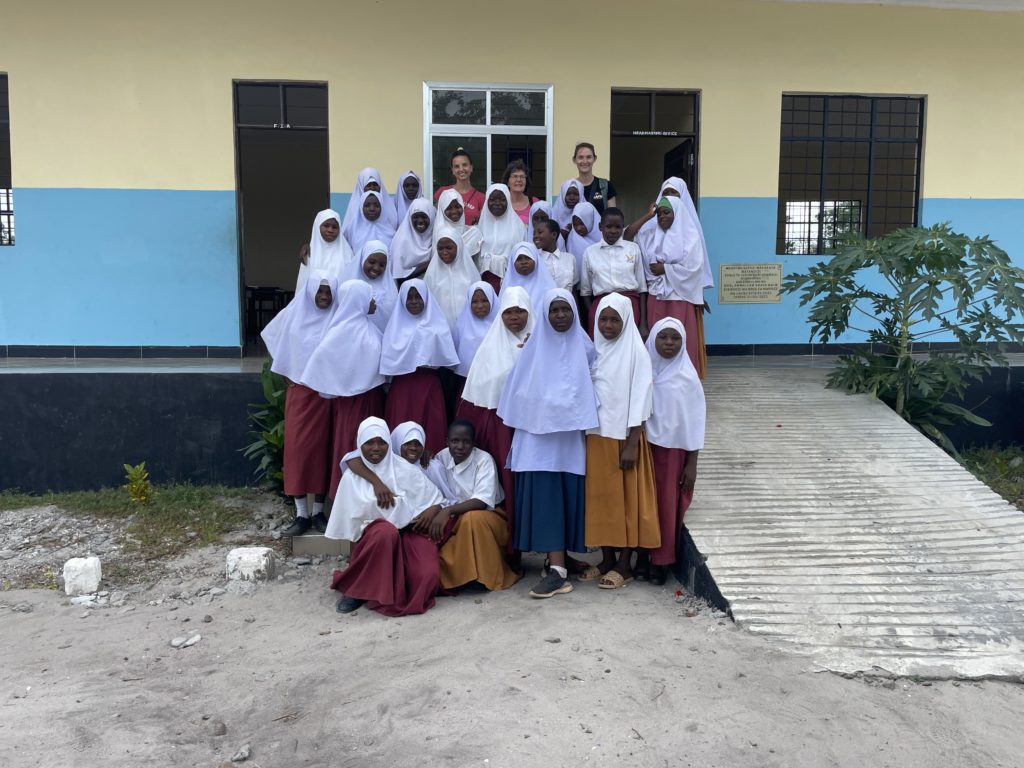
There is a desperate need around the world for women to be educated about their menstrual cycles and equipped with feminine hygiene products.
According to the World Bank, an estimated 500 million women and girls globally don’t have access to the facilities they need to manage their periods. Many of these women also lack any kind of knowledge about their cycle and what is happening to their bodies during this time.
While on a LIFE Team trip to see GAiN’s water strategy first-hand in Tanzania, there was a unique opportunity for GAiN’s Water for Life Initiative (WFLI) to respond to this need. In addition to the usual tasks of building a well pad and engaging with villages and the local church, the team decided to give away menstrual hygiene packages and educate girls on their cycles. This form of distribution and training is the first of its kind that GAiN has ever done.
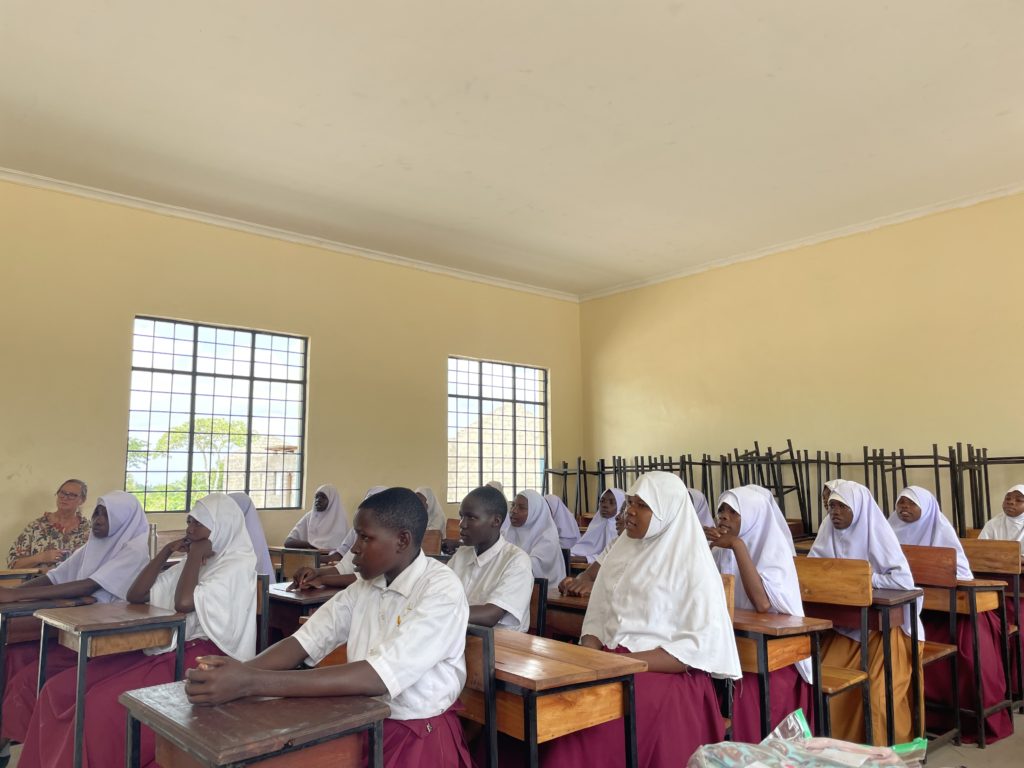
“We went to a secondary school in Kibiti, Tanzania where GAiN is currently working on providing a well,” said Monique Lieuwen, Project Manager for WFLI. “A lot of the kids walk over an hour to get to school.”
Monique explained how she and, Jess, Community Health Project Manager for WFLI, as well as two other female LIFE team members and GAiN Tanzania staff members Neema and Oliva all arrived at the school and met with the principal, who directed them to a private classroom. There they met with a group of 26 female students who were approximately ages 14-18. Each girl received a menstrual hygiene package, which came in different sizes and consisted of five reusable pads, one pair of underwear and a set of instructions. These pads were sewn by volunteers from Australia and are made from towels and flannel with a snap underneath to keep it secure.
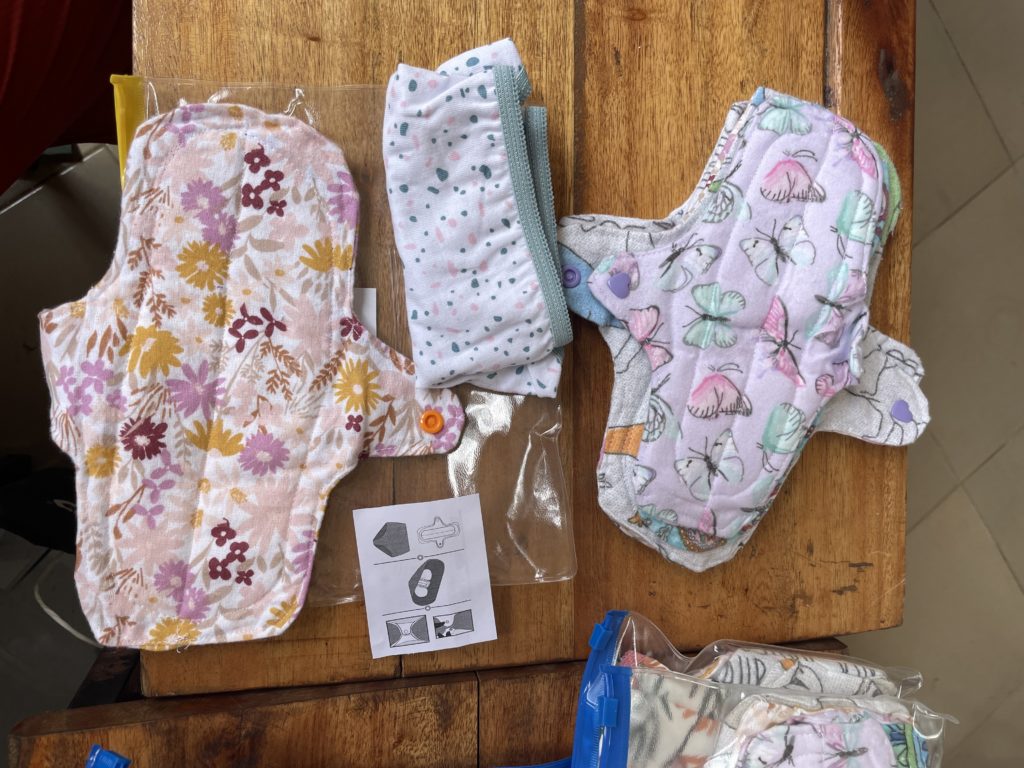
“At first, the girls were a little shy and nervous, but they opened right up,” Monique shared. “It was awesome. They were so engaged and excited, they had never received anything like this before. It wasn’t just a distribution– it was education.”
Neema and Oliva taught the girls how to use the reusable pads and keep track of their cycle. In return, the girls shared about their experience in dealing with their periods. Instead of pads, they would use cloth and then refold it to keep using it over and over. The lack of proper hygiene products is made worse by the shame culture surrounding a woman’s cycle. Many girls are forced to stay home or stay away from school to reduce the risk of anyone finding out that they are on their period.
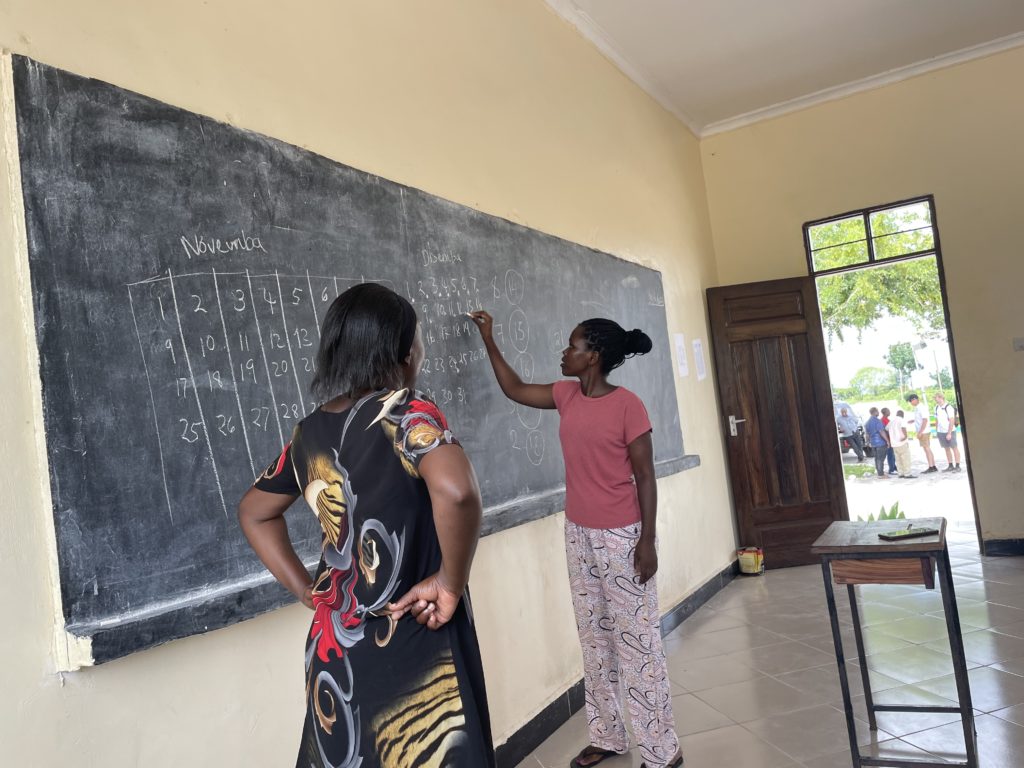
“When we gave them a pack, they hid it under their head coverings,” Monique recalled. “They didn’t want anyone to see them.”
Because of the embarrassment of being on their period, girls miss one week of education out of every month and sometimes drop out of school entirely. Mothers also succumb to shame and refuse to teach their daughters about menstruation, creating a generational pattern of silence and secrecy.
In an attempt to break some of the stigma and mystery associated with periods, Jess, Neema and Oliva crafted a simple menstrual training for the girls. The team not only discussed the physical function of a period, but explained that this shared female experience is a way to support one another socially. They also encouraged the students to talk with one another about their periods and look out for one another as a way to reduce feelings of shame and isolation.
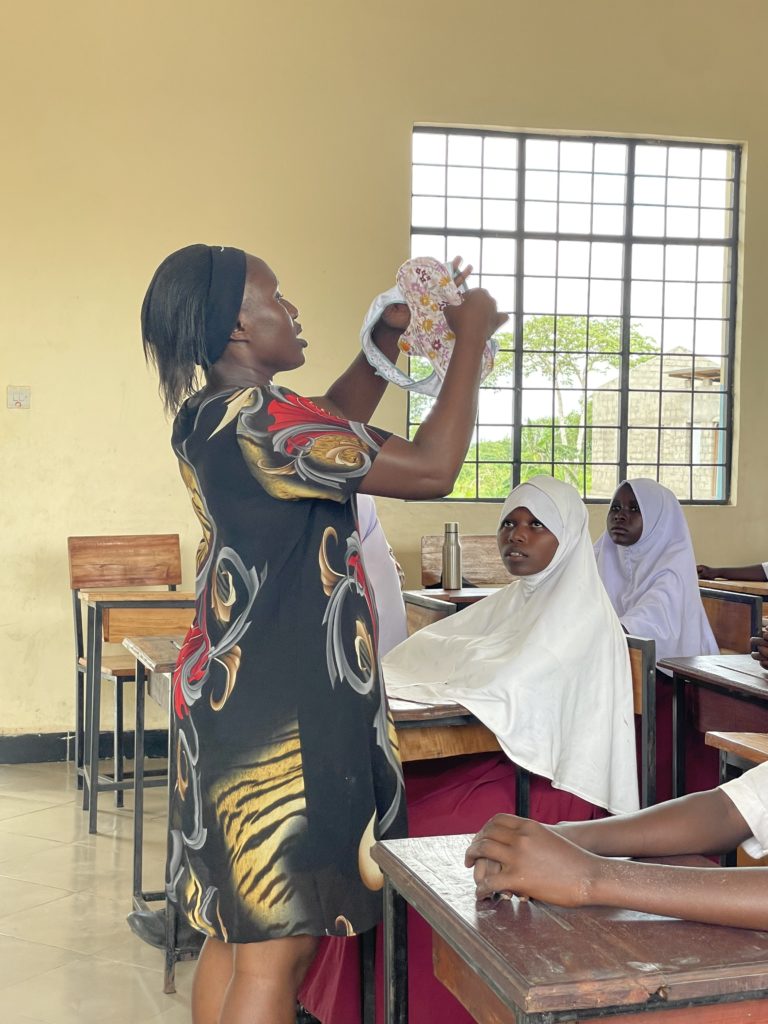
“One girl said, ‘thank you for the education,’” Monique shared. “That meant a lot, because it’s so much more than saying ‘thank you for the pads.’ Education is so much better and is what will have a lasting impact on these girls and their culture.”
These menstrual packages and training sessions are part of a trial project that will hopefully continue as long as there is funding and volunteer capacity to sew reusable pads. For now, we are thankful for the opportunity to have facilitated our first distribution and training with these teenage girls, and hope that it has gifted them with a measure of dignity and confidence for the future.
Source: https://www.worldbank.org/en/news/feature/2018/05/25/menstrual-hygiene-management

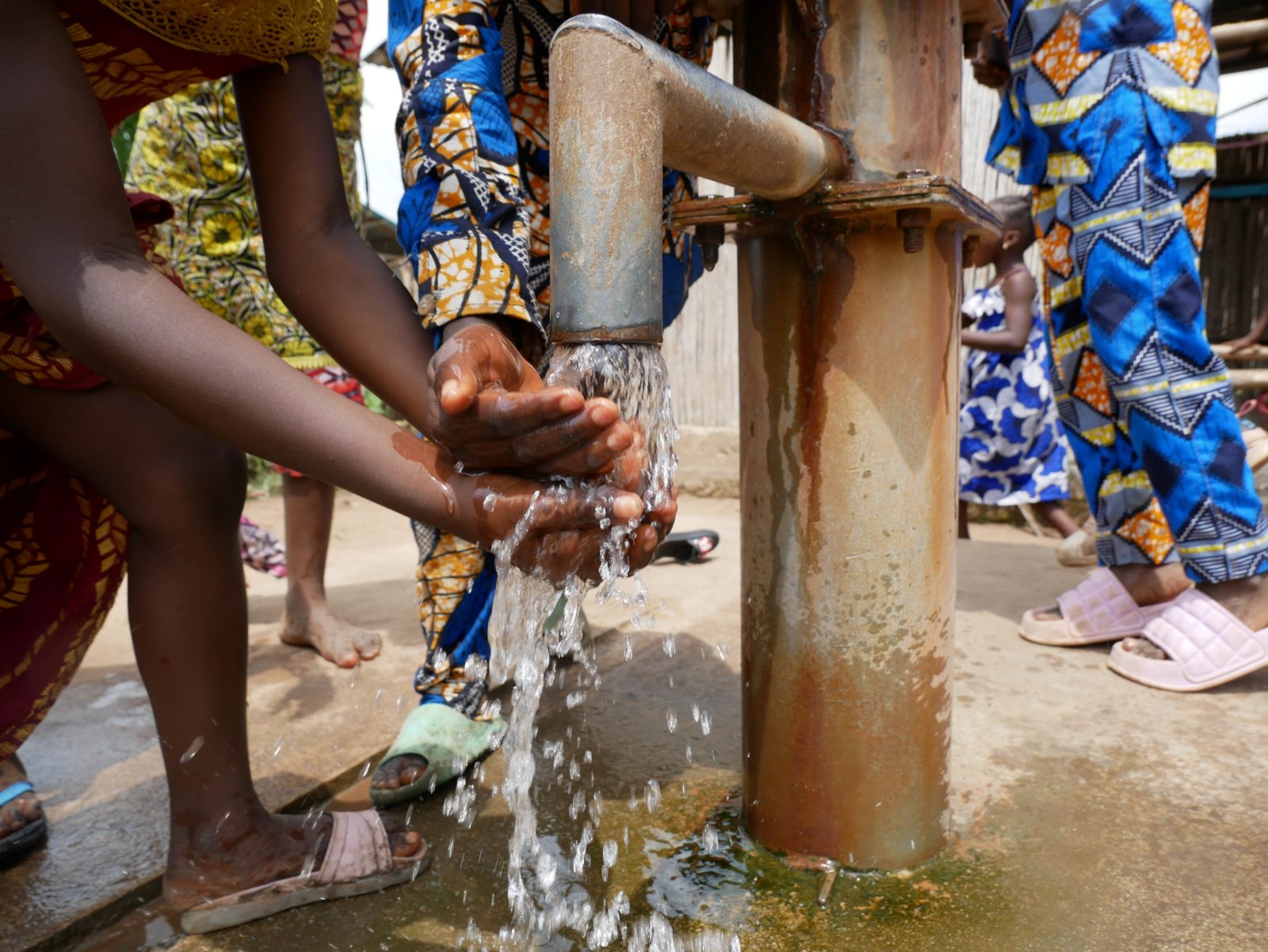
Leave a Reply